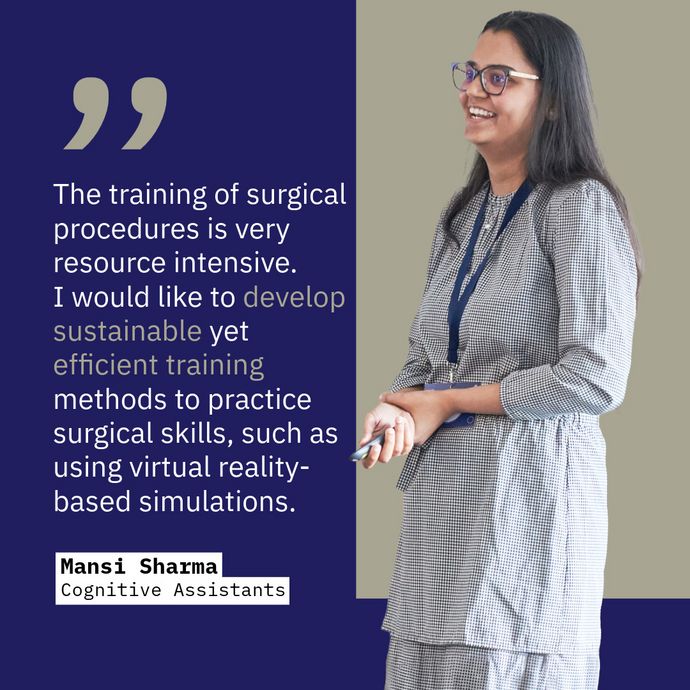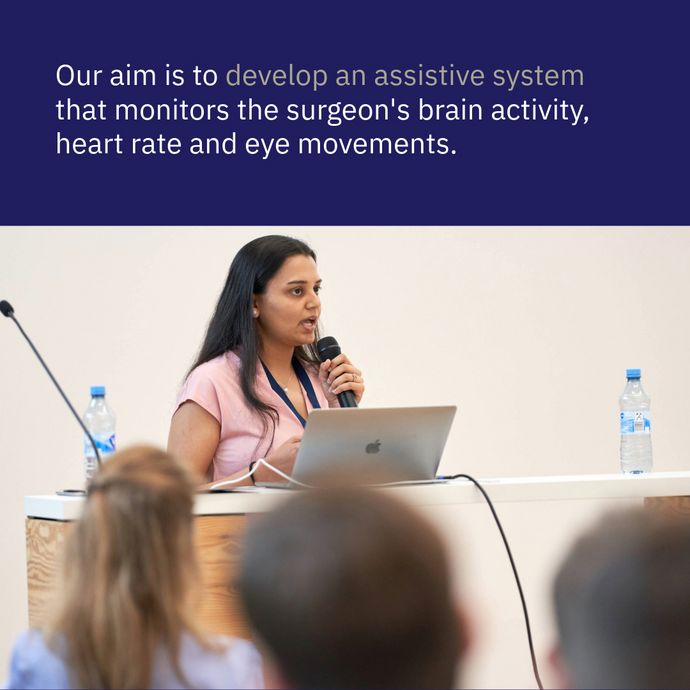

Please introduce yourself briefly and describe your current role at DFKI
My name is Mansi Sharma. I am from India. I joined DFKI in 2020 and since then I have been working as a researcher and PhD student in Computer Science at DFKI. My research focuses on human intent recognition using multimodal physiological sensors such as brain signals, eye tracking and heart rate.
In which of the 28 research departments do you work at DFKI?
I work at DFKI Saarbrücken in the Cognitive Assistants research department. We work on a variety of topics such as human intention recognition, brain-computer interfaces, virtual reality, human-robot interaction, cognitive psychology and multimodal interaction for a wide range of applications in the fields of Industry 4.0, automotive, healthcare, intelligent living and education.
What are you working on at the moment, or in other words, what are your plans for saving the world?
The training of surgical procedures is very resource intensive and the resources are often only used once. I would like to develop sustainable yet efficient training methods to practice surgical skills, such as using virtual reality-based simulations. Right now, I am working on assessing cognitive workload during surgical interaction. Our aim is to develop an assistive system that monitors the surgeon's brain activity, heart rate and eye movements. Such a system would enable surgeons to sharpen their surgical skills and progressively adjust, even in challenging scenarios, to increasingly complex challenges.

What are your strengths and what has been your greatest success or favourite experience so far?
I actively contribute to the research community and enjoy participating in competitions to enhance my technical skills and keep me motivated. I am thankful for the opportunities to attend various summits and workshops. Recently, one of my projects was highlighted in regional TV and media, promoting the exchange of ideas for potential new collaborations.
What do you enjoy most about your job at DFKI? What inspires and fascinates you?
I appreciate how we connect various domains to bridge gaps with our research ideas. Our research focuses on exploring scenarios from everyday life, which holds significant importance as research should be applicable to derive the most benefit and adaptable to align with future considerations. I am fascinated to see the increasing integration of technology into various aspects of our lives, making our lives easy but also dependent on technology.
If you weren't a scientist, what would you have become?
I would have chosen a career in medicine to become a surgeon because it is the most rewarding role to save and improve lives. The profession requires constant learning as each case presents its own unique challenges. Perhaps this is why the use case for my project focuses on improving surgeon decision-making and optimizing surgical outcomes.